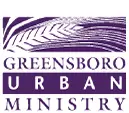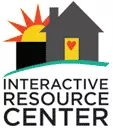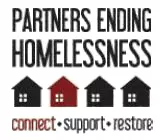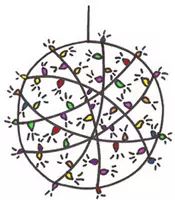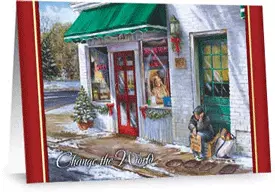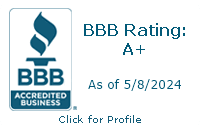December 2011

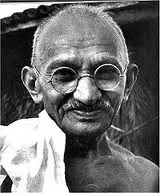
I recently came across this very powerful quote from Mahatma Gandhi – "If you hate injustice, tyranny, lust and greed, hate these things in yourself." Does this quote disturb you? It certainly disturbed me – not only because "hate" is such a strong word, especially during the holiday season, but primarily because Gandhi was aiming that list of sins at ... me. And how does "me" react to this? "Gandhi, sir, do you mean me? You think I've been unjust, tyrannical, lustful, and greedy? Me?"
I bet this reaction would be nearly universal in our society – yet, if everyone actually lived out Gandhi's advice, those conditions would no longer exist. Obviously, we're not there yet, so there must be plenty of "me" not answering honestly.
Psychologists call this reaction the "fundamental attribution error." John Maxwell, leadership author and speaker, explains it this way – "We tend to judge others by their actions ... we judge ourselves by our intentions." Another way to say this is we rationalize our own actions based on our intentions, while we judge others solely on their actions. And the larger the action or result, the greater the judging and rationalizing. What might these sound like?
- "A person unfairly imprisoned represents a tragic injustice ... but an unfair outcome is not my fault because I found a legal loophole justifying my action."
- "A dictator uses tyranny to hold on to power ... but if I play hardball in a negotiation because I know I hold the upper hand, that's just smart business!"
- "The affairs and sexual scandals of public figures are newsworthy examples of lust ... but my evening romances with a married coworker are different because we both truly love each other."
- "Those Wall Street investment bankers and their greed wreaked havoc on our economy and nearly toppled our financial system ... but my needing a little extra money and getting this by taking advantage of some fat cat in a business deal is definitely not the same thing!"
Our rationalizations have a spiritual implication, and I am grateful to Mike Aiken, Executive Director of Greensboro Urban Ministry (GUM) for this particular insight. Mike was leading devotions for the Friday Breakfast volunteers, and he reminded us that Jesus began his public ministry by reading from the book of Isaiah – "The Lord has sent me to announce freedom for prisoners, to give sight to the blind, to free everyone who suffers, and to say, 'This is the year the Lord has chosen.'" (Luke 4:18b, 19, CEV). Mike explained, "Everyone assumes Jesus was talking about literally restoring sight to blind people – but I believe Jesus really meant he would cure the spiritual blindness keeping the powerful and the rich from seeing the plight of their fellow human beings."
Spiritual blindness is what keeps us from seeing the common source of our own small sins and others' major sins. In fact, our small sins would almost certainly be amplified if we had the same money, power, or status as a tycoon, dictator, or politician. Same source, different impact.
How do we diagnose spiritual blindness? Late December is a natural time to reflect on past actions, and evaluate their impact on others – and you. As you do this, you may develop these common symptoms – a nagging conscience, actions explained half-heartedly, seeking comfort in gray areas, and excessive use of the word "but."
The prescription for overcoming spiritual blindness? Volunteer at GUM or a similar agency. You will see people different from you, yet somehow a reflection of you. You will recognize the shared humanity of everyone. You will see the tragic cost of spiritual blindness – the fallout of injustice, tyranny, lust, and greed, on both large and small scales. You will see the strength of people getting back on their feet, and the love of people there to help them. You will open your spiritual eyes. And you will learn to hate the right things.
![]()
Todd L. Herman
Additional Resources – Here are some ways to get involved:
Greensboro Urban Ministry 
www.greensborourbanministry.org
Greensboro Urban Ministry is an ecumenical outreach agency supported by more than 200 congregations representing Protestant, Catholic, and Jewish faith traditions. Not only does Greensboro Urban Ministry provide crisis intervention and emergency services through the basics of food, shelter, and clothing, but we also help many individuals and families break the cycles of poverty, hunger, addiction, and homelessness.
Interactive Resource Center 
The Interactive Resource Center (IRC) assists people who are homeless, recently homeless or facing homelessness reconnect with their own lives and with the community at large. The IRC understands that the homeless is not helpless, and that with a combination of basic services and individualized attention those experiencing homelessness, those facing homelessness and those just coming out of homelessness can renew their connections with the community and ultimately restart their lives.
Partners Ending Homelessness 
www.partnersendinghomelessness.org
Partners Ending Homelessness encourages public understanding of the causes and conditions of homelessness and leads a strong and stable system of care for individuals and families to reduce homelessness in Guilford County. The organization is a groundbreaking, collaborative partnership that includes over 200 community partners that work to generate housing, strengthen prevention and supportive service efforts, and increase coordination, collaboration and access through the continuum of care in our community.
Shine the Light on Hunger 
www.lightedchristmasballs.blogspot.com
My friend, Jonathan Smith, of Jonathan Smith & Co. began a family tradition many years ago – making large lighted Christmas balls out of "poultry netting" (more commonly called "chicken wire") and strands of lights to hang from tree branches. That family tradition spread to his neighbors on Madison Avenue in Greensboro, NC, and they made a cause out of it – gathering for fellowship to make the balls, and collecting canned food and money for Greensboro Urban Ministry and Second Harvest Food Bank to help others. These neighbors then expanded this to more of their Sunset Hills neighborhood, and today many people in Greensboro slowly drive through the neighborhood at night to enjoy the beautiful lighted balls and donate money or canned food. Jonathan and his family and friends call this effort "Shine the Light on Hunger."
- For more on this effort, please visit the "Lighted Christmas Balls" blog. Helpful Tip: Jonathan suggests cutting the chicken mesh a little longer than 45" – 46-47" lengths help make the ball more spherical.
- Jonathan is also happy to speak to your neighborhood group, congregation, civic club, or business on the "Shine the Light on Hunger" program, and demonstrate how to make the balls! Please contact him at 336.272.9488 or This email address is being protected from spambots. You need JavaScript enabled to view it..
The Honor Card 
In 1988, artist William Mangum of Greensboro, NC, began lending his artistic and publishing assistance to Greensboro Urban Ministry's struggling fundraiser, the Honor Card program. He created an image called "Not Forgotten." It was warmly embraced and sold 5,000 cards, raising a record setting $52,000 for various outreach programs. Every year since, Bill – who is also an active volunteer at GUM and started GUM's original weekday breakfast, the Wednesday Prayer Breakfast – has donated an original painting, to be used by GUM and other agencies across the state for fundraising to meet the needs of the homeless. During the holiday season, Honor Cards are available for a minimum donation of $5 each. Individuals who purchase Honor Cards send them to friends and family, indicating that they have been honored by a donation to a local outreach agency. All proceeds go directly to each agency. Since 1988, over $3,000,000 has been raised for GUM and other agencies through the Honor Card program.


